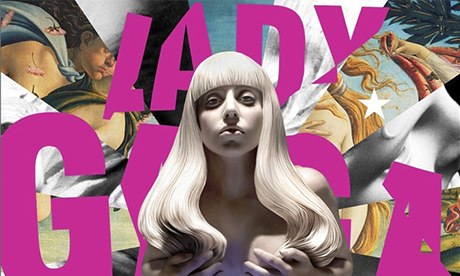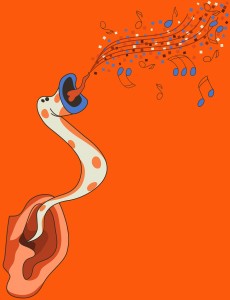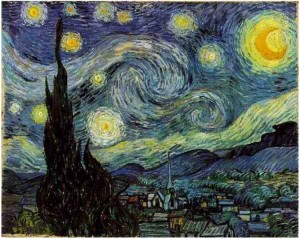For the last few weeks I’ve had a particular song stuck in my head. I have been singing it to myself constantly. I have been perpetually playing it on repeat. I have become rather obsessed with this song.
This happens to me sometimes, as it does everyone. I once had the theme tune from The Famous Grouse adverts running round and round in my head for about two years. Every time I thought I’d got rid of it, up it would pot again to annoy me.
This isn’t like that. I do not find the fact this song will not leave me alone annoying. I am not being driven mad by it, I am embracing it. I am actually purposefully immersing myself in it. This usually happens to me when something about the song hold meaning, for me at least, and I’m trying to fathom out just what that meaning is.
From the first time I heard it, something about it grabbed me and I knew-without really understanding why at the time, for I wasn’t really listening to the lyrics-that there was something about this song that was very important to me.
The song in question is Lady Gaga’s ‘Dope’.
The reason I am finding this song so mesmerising is that there is one particular line which encapsulates a feeling I know very, very well:
‘Been hurting low from living high for so long’.
This doesn’t resonate with me because I have a drug problem, but rather because I have a brain chemistry problem which quite regularly sends me so high that, when I inevitably come down, it hurts.
A lot.
My worst periods of mania are always, always, always followed by a period of extreme depression. This never occurs to me while I’m manic; while I’m manic, nothing occurs to me, I just go about my insane business believing myself to be generally wonderful and, of course, completely invincible. The thought that anything could ever hurt me is inconceivable, yet the very fact I am manic is the prelude to a period of unbearable pain. I know this. Somewhere in my mind I retain this information, even when I’m high. I believe this is part of the reason so many people who suffer from mania refuse treatment while manic, avoid dealing with their mania, and generally will do anything to perpetuate the euphoria rather than allowing themselves to ‘come down’. Because we never just come down. We don’t suddenly find ourselves evening out and feeling ‘normal’ again.
We crash.
Hard.
And it hurts.
Sometimes the crash is so bad it feels like it will kill us.
Sometimes, it does kill us.
I know people who did not make it through the crash. They couldn’t manage the depression. It hurt too badly, it was too much to deal with and (as I have tried to do myself, several times when feeling like this) they took their own lives. This is a sad truth of the bipolar existence; sometimes it literally kills us.
Mania has a lot of consequences, knock on effects that follow you throughout the rest of your life, seeming to punish you for ever having the audacity to give in to the euphoria. Depression has its consequences also, debilitating you, ruining your self-confidence, ruining your body, robbing you of your self-respect and, if you’re not very careful, robbing you of your life.
When we’re neither up, nor down, it is possible to acknowledge these things and understand that the best thing for us is to avoid both states wherever possible. This would seem obvious, surely, it’s a no-brainer, don’t get high, don’t get low, stay in the middle, where it’s safe and you’ll never get hurt by either state.
It’s not so simple.
Not long ago my psychiatrist wanted to switch my MEDs to lithium-based substances, as the mood stabalisers I am on are currently at the highest safe dose and still aren’t curtailing the rapid cycles of my mood. I refused. Lithium, I was told, would even me out. At the time I said I didn’t want to be evened out, I didn’t want to be ‘flat’. I still maintain this is true, however I now think perhaps there is more to it.
The cycles of my bipolar have become such an intrinsic part of my personality that I honestly do not know who or what I would be without it. Would I have the same cynical, sarcastic sense of humour if I no longer felt depressed? Would I still be able to write the way I do, think the way I do, if I no longer experience mania? These are not things I am willing to risk losing, even if the consequence—the depression—and the risks—the possibility I’ll one day successfully kill myself—are so real.
How many people are so sure of themselves, so certain that they are who they were meant to be, that they won’t give it up, no matter the cost? I would wager there aren’t many. I would further posit that this is another gift of this ‘disorder’.

This is not to say that I don’t want to get ‘better’, but ‘better’ for me means learning to deal with my moods more effectively, understanding why I react the way I do to certain situations and, perhaps, taming the beast a little. It does not mean eradicating myself. It means acknowledging the fact that I’m still going to feel low from living high, and I need to figure out how to get through that when it happens.
Because it will keep happening.
That’s just me.
And I’m surprised to find that, for the first time in my life, I’m perfectly fine with that.







